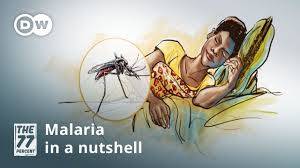Introduction:
Malaria is a life-threatening disease caused by Plasmodium parasites and transmitted through the bite of infected female Anopheles mosquitoes. It remains a major global health concern, particularly in tropical and subtropical regions. While the development of effective treatments has significantly reduced the mortality rate, there is still a need to continue advancing treatment strategies. This article will discuss various approaches for treating malaria, focusing on antimalarial drugs and preventive measures.
Antimalarial Drugs:
a) Artemisinin-based Combination Therapies (ACTs): ACTs are currently the most effective treatments for uncomplicated malaria. Artemisinin, derived from the Artemisia annua plant, is combined with a partner drug to form ACTs. These combinations help improve treatment efficacy, prevent resistance, and reduce the parasite load. Examples of commonly used ACTs include artemether-lumefantrine and artesunate-mefloquine.
b) Quinine and Chloroquine: Quinine has been used for centuries to treat malaria. It is derived from the bark of the Cinchona tree. Chloroquine, a synthetic derivative of quinine, was once highly effective but is now limited due to resistance in some regions. However, it may still be useful in areas with low resistance rates.
c) Other Antimalarial Drugs: Several other drugs are used for treating malaria, including mefloquine, atovaquone-proguanil, and doxycycline. These drugs are typically reserved for specific circumstances, such as prevention in travelers or treatment of certain malaria species.
Prevention:
a) Insecticide-Treated Bed Nets (ITNs): ITNs are a highly effective preventive measure against malaria. These nets are treated with long-lasting insecticides that repel or kill mosquitoes. When used consistently, ITNs significantly reduce the risk of mosquito bites and transmission of the parasite, especially during nighttime when mosquitoes are most active.
b) Indoor Residual Spraying (IRS): IRS involves spraying insecticides on the interior walls of houses and other structures. This method helps kill mosquitoes and prevent them from entering homes. IRS is particularly effective when combined with ITNs, as it creates a double layer of protection against malaria vectors.
c) Chemoprophylaxis: For individuals traveling to malaria-endemic areas, chemoprophylaxis involves taking antimalarial drugs before, during, and after the trip. The choice of drug depends on the region's drug resistance patterns and the traveler's health status. Consultation with a healthcare professional is essential to determine the appropriate chemoprophylaxis regimen.
d) Vector Control: Efforts to control mosquito populations are crucial in malaria prevention. This includes environmental management to eliminate breeding sites, larviciding to target mosquito larvae, and biological control measures such as introducing larvivorous fish into stagnant water bodies.
Conclusion:
Treating malaria requires a multi-faceted approach that combines effective antimalarial drugs with preventive measures. Artemisinin-based Combination Therapies (ACTs) are the mainstay of treatment for uncomplicated malaria, while other drugs may be used in specific cases. Preventive measures, such as the use of insecticide-treated bed nets, indoor residual spraying, chemoprophylaxis, and vector control, play a vital role in reducing malaria transmission.
To combat the ongoing threat of malaria, ongoing research and development efforts are necessary to develop new antimalarial drugs and preventive strategies. Additionally, community education and awareness programs are essential to ensure early diagnosis, prompt treatment, and effective prevention practices. By combining these efforts, we can work towards achieving the ultimate goal of eradicating malaria and improving the health and well-being of populations affected by this deadly disease.



No comments yet
Be the first to share your thoughts!